On the evening of March 29, 2023, the 17th Future Education International Salon, sponsored by the Future Education School of Beijing Normal University, was successfully held. The guest invited for this event was Dr. Tore Hoel, a senior researcher at the Oslo City University. Dr. Tore Hoel is a national specially-appointed foreign expert, a senior researcher at the Oslo City University in Norway, and has been active in the field of international education standards and educational technology research for decades, with high academic reputation worldwide. Dr. Tore Hoel had a discussion with teachers and students on the topic of "Generative Al and ChatGPT: Implications, Capabilities, and Risks".
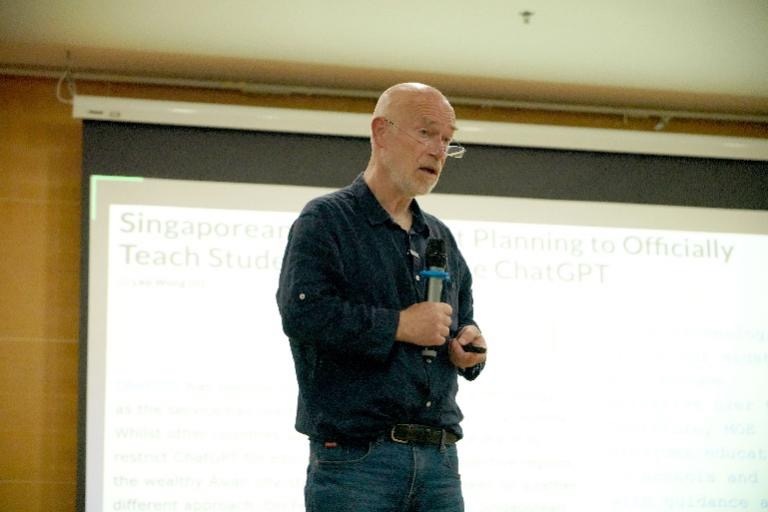
Recently, Generative Artificial Intelligence (Generative AI) and large language models have attracted widespread attention and discussion. Generative AI aims to use AI technology to automatically generate multi-modal data such as text, images, videos, and audio, and has caught the attention of the education industry. Among them, ChatGPT, launched by OpenAI in the United States, has particularly impressive performance. Due to its good natural language understanding and generation capabilities, ChatGPT has shown high application potential in the field of educational technology.
At the beginning of the event, Tore Hoel introduced the theoretical basis of Generative AI. As a specific type of AI, Generative AI focuses on generating new content, such as text, images, and music. The system is trained on large-scale datasets and uses machine learning algorithms to generate new content similar to the training data. ChatGPT is not an application, but a language generation model focused on dialogue generation. It can generate intelligent responses based on user's text inputs. The response can be a short phrase or a long essay. GPT stands for Generative Pre-trained Transformer.
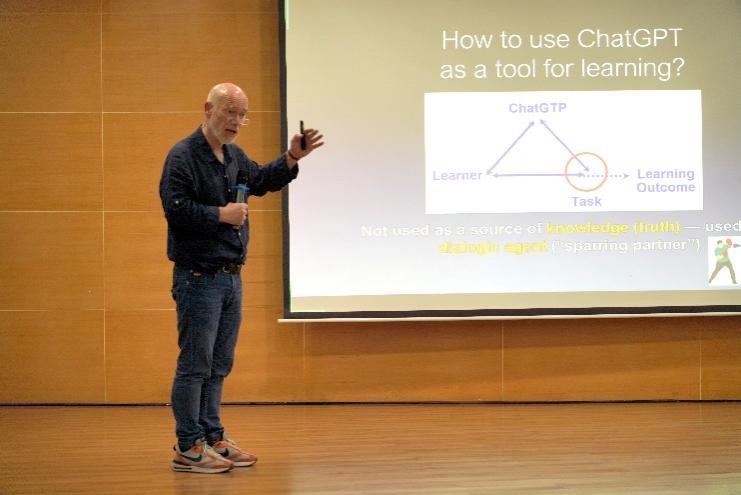
Subsequently, Tore Hoel further introduced the wide application of Generative AI and ChatGPT in various fields such as healthcare, education, and entertainment. Reinforcement Learning with Human Feedback (RLHF) is a new technology for training Large Language Models (LLM), which is crucial for models such as OpenAI's ChatGPT, Deep Mind's Sparrow model, and Anthropic's Claude model. Therefore, ChatGPT can greatly improve work efficiency and accuracy. In the field of education, ChatGPT can automatically provide personalized learning support and feedback for students based on their needs and learning situation, thereby improving students' learning effectiveness. In the healthcare field, ChatGPT can help doctors with preliminary diagnosis and treatment suggestions, improving the accuracy of diagnosis and treatment. As for the entertainment content industry, the most important short-video platform has already moved towards intelligent and tool-oriented direction, and there is more potential for integration with ChatGPT. There is huge room for improvement in content production, publishing, and interaction.
At the same time, Tore Hoel had a discussion with teachers and students on the ethical and legal issues raised by Generative AI. The application of Generative AI in fields such as education and healthcare requires handling a large amount of personal information, so data security is an important challenge. Developers need to take effective measures to protect users' privacy and personal information from being violated. Generative AI may also infringe on others' copyrights or privacy, such as using unauthorized or unconsented data to train models or create content. Generative AI may also cause information distortion or deception, such as producing false or biased news or advertisements. These issues will inevitably harm the interests or rights of others and affect social order and public trust.
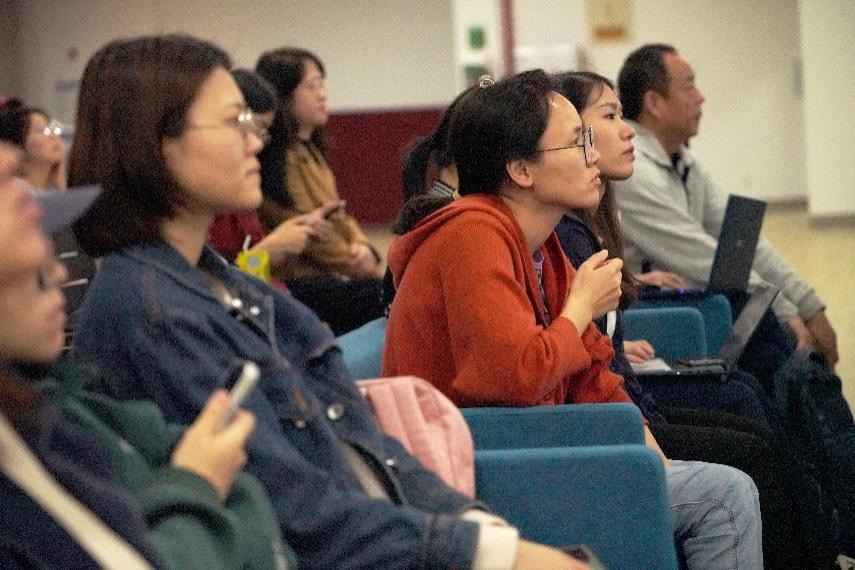
Furthermore, Tore Hoel pointed out that the rapid development of ChatGPT has also raised many concerns among educators worldwide. These concerns mainly focus on the following aspects: the increase in human-machine dialogues may lead to a decline in interpersonal communication; students using ChatGPT to ghostwrite assignments and cheat; writing teaching and paper writing as evaluation methods facing threats and challenges; and the abuse of ChatGPT in scientific research leading to academic misconduct. In fact, the New York City Department of Education in the United States took the lead in banning students from using ChatGPT on campus to address the potential proliferation of AI-assisted plagiarism (Elsen-Rooney, 2023). The University of Hong Kong also announced a ban on the use of ChatGPT or other AI tools in all courses, assignments, and evaluations unless students obtain written permission, otherwise they will be considered as plagiarism by the school. Faced with the rapid development of generative AI technologies such as ChatGPT, how should we rationally understand the impact of ChatGPT on human learning, life, and work? This is an important issue facing every sharp and forward-looking school education administrator and teacher in this era.
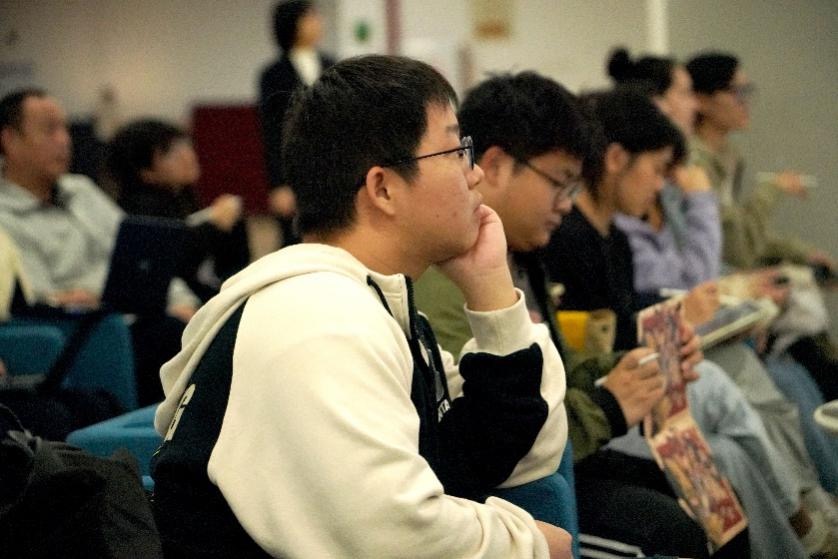
At the end of the event, Tore Hoel combined his long-term observation of cutting-edge learning technology and pointed out from the practical application level that generative AI represented by ChatGPT has broad prospects for future applications in the education field. He also explored the impact of ChatGPT on education from a multidimensional interdisciplinary perspective. Education should focus more on cultivating students' high-level thinking skills, especially interdisciplinary and diverse thinking skills, critical thinking skills, and creative thinking skills. Only with strong interdisciplinary and diverse thinking skills can students understand and distinguish complex problems and situations in the real world and ultimately complete practical tasks that AI cannot cope with.
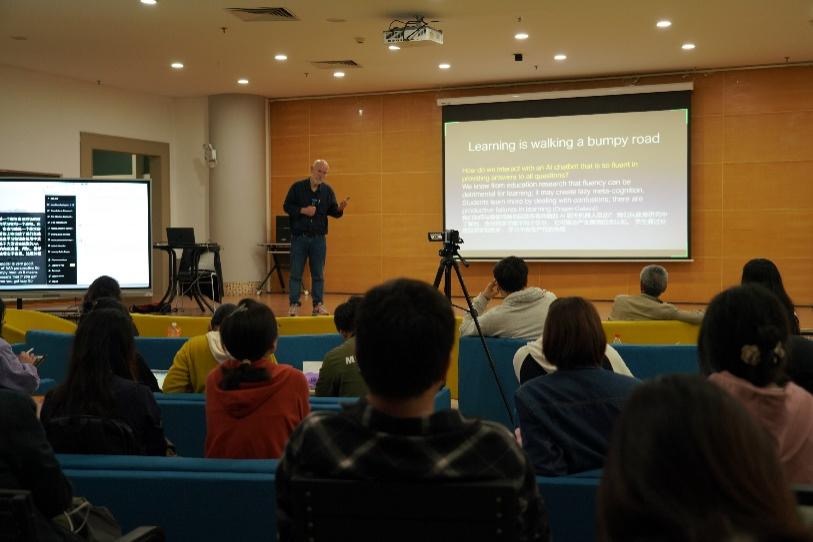
During the interaction between the teachers and students, the students actively interacted with Tore Hoel and asked questions about the impact of generative AI on the education field, future teaching management models, and future teacher literacy. Tore Hoel provided insightful responses and answers from a professional perspective based on his own research experience, leading everyone to explore the impact of AI on the education field in-depth. This further deepened the students' clear understanding and feelings about cutting-edge technology, and provided important guidance for teacher education students to open up new academic research ideas, broaden their educational research horizons, and stimulate their enthusiasm for teaching research. The academic atmosphere on-site was strong, and the students expressed that they benefited a lot from this event. The salon ended with warm applause.



 Last Page
Last Page

 Phone:0756-3621121
Phone:0756-3621121
 Email:ccie@bnu.edu.cn
Email:ccie@bnu.edu.cn